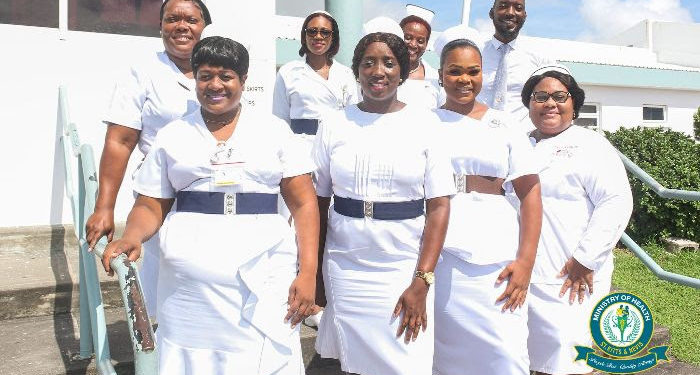BASSETERRE, St. Kitts, August 21, 2024 (SKNIS) – Prime Minister of St. Kitts and Nevis, the Honourable Dr. Terrance Drew, has extended high commendations to the public health team after the Federation was recognised by the Pan American Health Organisation (PAHO) and the World Health Organisation (WHO) for its exceptional results in its vaccination efforts.
In an article published on August 19, 2024, on the official PAHO website, St. Kitts and Nevis and Antigua and Barbuda were spotlighted as the reasons why the Region of the Americas was “the only World Health Organization (WHO) region to have exceeded in 2023 the vaccination coverages reported in 2019, prior to the commencement of the COVID-19 pandemic.”
PAHO Director, Dr. Jarbas Barbosa, sent a letter of appreciation to Prime Minister Dr. Drew in recognition of this achievement. In the letter Dr. Barbosa commended St. Kitts and Nevis “for the encouraging results in routine immunisation coverage obtained in the last year, as reported in the joint WHO and the United Nations Children’s Fund (UNICEF) Estimates of National Immunization Coverage (WUENIC).”
Prime Minister Dr. Drew offered words of congratulations to the nation’s health professionals and emphasised their continued role in reinforcing the messages of the effectiveness of vaccines and their benefits in the overall protection of individuals and loved ones.
Dr. Drew noted that vaccines are safe and prevent vaccine-preventable diseases, and as such, he urged every Kittitian and Nevisian to get up-to-date with their doses of all vaccines included in the national immunisation schedule, particularly those for infants who are at the highest risk for contracting communicable diseases.
The task ahead for the public team now, is to identify the population groups with the lowest levels of vaccination and encourage those individuals to get up to date with vaccination schedules.
Dr. Barbosa stated that PAHO/WHO stands ready to assist St. Kitts and Nevis and other nations in this regard through technical cooperation with innovative strategies to identify these groups and the barriers they face in accessing vaccination services.
-30-









